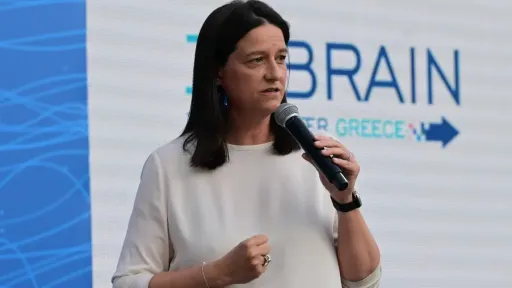Why Qatar broke a 56-year-long relationship with OPEC

Doha wants to keep its role as the world’s leading LNG producer independent of the oil cartel’s politics, which has come to be influenced by non-member Washington.
Qatar announced it is leaving the Organisation of Petroleum Exporting Countries (OPEC) to focus on plans to increase its natural gas.
The surprise decision comes just two days before the oil cartel will discuss production cuts, which countries dependent on energy exports quite desperately need. The price of oil plunged 22 percent in November, the worst monthly rout since 2008.
Doha will still be sending its delegates to the 15-member OPEC meeting in Vienna, where representatives from non-OPEC producers such as Russia will also be in attendance.
Qatar is OPEC’s smallest oil producer with around 600,000 barrels per day (bpd) against the cartel’s total output of roughly 33 million bpd.
Yet the tiny Gulf country played a key role in OPEC negotiations after joining the cartel in 1961. In 2016, amid falling oil prices, Qatar helped Saudi Arabia and its regional rival Iran reach an agreement on production cuts.
“Qatar feels it no longer has a say in matters of the organization, which is being controlled by its de facto leader Saudi Arabia,” Dr. Tarek Cherkaoui, a Middle East analyst, told TRT World.
“So it has opted out instead of playing a marginal role or being bullied.”
Qatar’s Energy Minister Saad Sherida al Kaabi insisted during a press conference that the decision was not linked to the economic and travel blockade on Doha by OPEC’s top producer and de facto leader Saudi Arabia and the kingdom’s allies — the UAE, Bahrain, and Egypt.
Doha says its decision is centered on plans to increase gas production from 77 million tonnes annually to 110 million tonnes. Qatar is the world’s largest producer of liquified natural gas (LNG).
Qatar’s exit coincides with pressure on Riyadh and specifically Crown Prince Mohammed bin Salman over the killing of Saudi journalist Jamal Khashoggi.
Excess supply
Oil prices are facing one of the worst slumps in recent times and producers face the crucial question of how long they can wait before the situation starts to hurt their economies.
Countries that rely on energy exports such as Saudi Arabia, Russia and Venezuela took a hit after the drop in oil prices.
OPEC is responsible for one-third of the world’s oil output and members have to abide by strict production quotas. In 2014, the price of oil hit a high and then plunged after the cartel decided to keep pumping oil despite signs of excess supply in the market.
A similar situation prevails now.
Just two months ago, Brent crude, the international benchmark for oil prices, hit its highest mark in four years, touching $86 per barrel. It was the long-awaited recovery OPEC was waiting for.
Some traders were expecting the price to hit $100 in the following months.
Oil prices began to firm up after US President Donald Trump announced in May that he would pull out of a landmark nuclear deal and re-impose sanctions on Iran, the third largest producer in OPEC.
The US, which wants to inflict maximum damage on the Iranian economy, has repeatedly said it wants to drive down Iranian oil exports to zero. However, when the sanctions came into effect in November, the Trump administration gave waivers to eight countries to continue oil imports from Iran.
These countries, which also include large economies such as China and India, account for 75 percent of Iran’s energy export.
As the market realized there was plenty of oil available, prices began to drop and last week came down to below $60 a barrel.
Saudi Arabia, facing pressure from Washington over the Khashoggi killing and in line with Trump’s wishes to keep prices low to keep his voter base happy, ramped up production to cool the market.
The low oil price benefits consumers in the US as well as countries such as Turkey and Pakistan, which depend on imports to meet their energy needs.
More oil has also come to the market from countries like Libya and Nigeria, which, until recently, were not able to produce enough due to conflicts and economic difficulties.
Iraq, another major OPEC producer, has restarted exports after an agreement with the Kurdish Regional Government.
Amid the uncertainty over oil, Qatar’s focus on natural gas can help the country gain allies.
“I think Qatar will try to form an OPEC for gas along with Russia, Iran, and Algeria,” Cherkaoui said.
The share of LNG is gradually increasing in the global gas trade. LNG will account for 40 percent of the world’s gas consumption by 2023 from a third now, according to the International Energy Agency.



